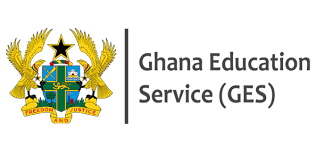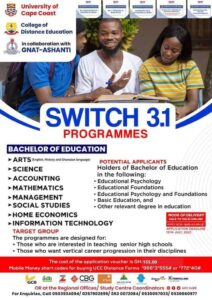All You Need To Know About Early Childhood Education (ECE) Unit Of GES

Early Childhood Education (ECE) Unit
Early Childhood Education (ECE) prepares children in readiness for primary school, and develop holistically, their physical, social, emotional, intellectual needs in order to build a broad and solid foundation for their wellbeing. To achieve this depends, firstly, on a strong Early Childhood Education (ECE) sub-system, built through quality Government structures and in partnership with strategic stakeholders, including parents and families, aimed at ensuring a collective ECE implementation and addressing children’s needs, especially the marginalized and most vulnerable including those with special educational needs.
Secondly, it hinges on ensuring that children are enrolled in KG at the right age (4 and five years) and exposed primarily to early stimulating experiences and nurturing care, and taught numeracy, literacy and problem-solving skills through play and games. This lays a solid foundation for life-long learning to enable them become responsible future citizens.
The Government of Ghana, through the Ministry of Education (MoE) and the Ghana Education Service (GES) has established conducive enablers through the development of the ECE Policy Framework (with accompanying documents that guide the ECE Policy Implementation such as the Policy Directives, Costed Implementation Plan/Monitoring and Evaluation Framework, ECE Policy Guidelines), to build on the Education Act 2008, which supports the constitutional commitment to Free and Compulsory Universal Basic Education (fCUBE), which provides for two years of Kindergarten education amongst children aged four and five years.
The approach is to reinforce The Education 2030 agenda and to meet the ECE targets in Ghana’s National Education Strategic Plan 2018-2030, aligned with the Sustainable Development Goal (SDG) target 4.2.4:‘by 2030, ensure that all girls and boys have access to quality early childhood development, care and pre-primary education so that they are ready for primary education.’ The best investments Ghana and any country can make to promote their own resource development, is by starting it right with her Kindergarten Children and ending it right.
The Ministry of Education and Ghana Education Service in Action.
Through the ECE Policy Framework, the MoE and GES aim to:
- Ensure KG Spaces are available for all KG children in Ghana;
- Ensure effective implementation of KG curriculum for improved play-based learning;
- Equip Inservice and Pre-service Teachers and Non-Professional workers in the ECE space
- Engage family and communities to provide learning opportunities at home to support children’s school readiness;
- Monitor and supervise for accountability at all levels of ECE service delivery;
- Encourage the development of socio-emotional skills and healthy physical development;
- Enhance social change and social justice through the reduction of inequality amongst the vulnerable and marginalized children;
Building wider, strategic ECE partnership for collective implementation and positive impact
MoE and GES through strategic collaboration with key stakeholders, are widening the ECE partnerships, to ensure that the ECE Policy Framework is implemented across the country, to impact positively, develop holistically, every four and five-year old child in Ghana.
ECE Policy
A young child’s brain is full of innate potential, and the early years offer an irreplaceable window of opportunity to set a path towards success in primary school and later in life. Quality Early Childhood Education generates a positive sequence of learning while lack of access to pre-primary education widens achievement gaps and restricts opportunities. Children who fall behind at a young age often never catch up with their peers, perpetuating cycles of underachievement and high dropout rates that continue to harm vulnerable children into their youth.
Globally, 175 million children of pre-primary age are not enrolled. Countries with high numbers of children not in pre-primary education are missing a critical investment opportunity and are at risk of suffering deep inequalities from the start. In the low-income countries, only 1 in 5 young children are enrolled in pre-primary education.
Unlike Ghana, 3 in every 4 children are in school (73.8%-2018/19 EMIS). Ghana is leading in pre-primary education in sub-Saharan Africa. In 2008, Ghana included two years of pre-primary education (Kindergarten) as part of its constitutional commitment to Free and Compulsory Universal Basic Education (fCUBE) and as part of strengthening the ECE-sub-system, the Ministry of Education and the Ghana Education Service has facilitated the approval of the ECE Policy Framework and endorsed by cabinet in 2020. The policy has three different documents (policy directive, MEL/Costed Implementation Plan and ECE guidelines).
Why the ECE Policy – The aim of the ECE Policy Framework:
The main aim of the ECE Policy is to strengthen the ECE sub-sector to advance the developmental growth (physical; cognitive; psycho-social, emotional) of all 4- 5-year-olds including the disadvantaged, vulnerable and those with disabilities and special needs children through the following:
- Ensure KG Spaces are available for all KG children in Ghana;
- Ensure effective implementation of KG curriculum for improved play-based learning;
- Equip Inservice and Pre-service Teachers and Non-Professional workers in the ECE space
- Engage family and communities to provide learning opportunities at home to support children’s school readiness;
- Monitor and supervise for accountability at all levels of ECE service delivery;
- Encourage in the development of socio-emotional skills and healthy physical development;
- Enhance social change and social justice by reduction of inequality amongst the vulnerable and marginalized children;
The launch is therefore to create public awareness of the ECE Policy and its contents and inform stakeholders of their roles and responsibilities. It is also to assure that MoE/GES bring together all key stakeholders for the effective implementation to ensure collective impact across the country.
Source: ges.gov.gh




